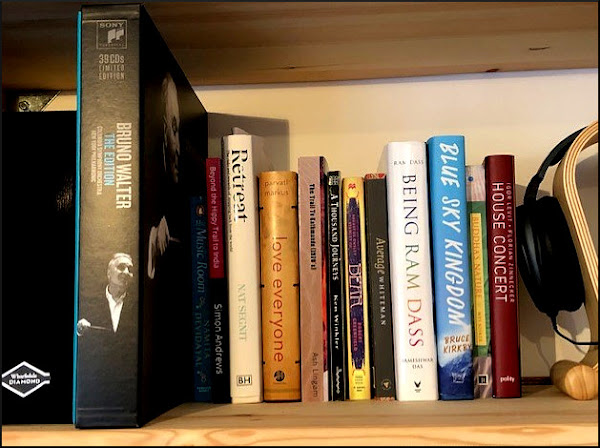Classical music's problem nailed in one sentence
While admiring Igor Levit as a pianist, in a Wall Street Journal review Tim Page takes exception to Levit's new book House Concert, describing it as "a dreary jumble—a succession of would-be aphorisms". Predictably Norman Lebrecht, who has turned negativity into a lucrative Olympic sport, gloats over the WSJ review.
A few months ago I wrote enthusiastically about Igor Levit's double CD Tristan, so I bought and read House Concert with some interest - that's the book on my 'just read' bookshelf. Now, as Tim Page confirms, Igor Levit is a remarkable pianistic success story. One measure of the value he has added to classical music is that at a time when the artform is suffering from serial deflation, his acclaimed Beethoven Sonata cycle for Sony retails for around double the price of cycles from other legendary pianists. So I read House Concert not to have my preconceptions and prejudices confirmed or to generate some tasty clickbait, but to learn more about what makes Igor Levit tick so successfully.
From House Concert I learnt that, love it or hate it, Igor Levit plays both the piano and the zeitgeist to perfection. Not only is he dauntingly musically literate, he is also dauntingly zeitgeist literate. Most importantly, not only does he excel at playing the social media game, he also excels at playing the music industry game.
And that is the vital point which Tim Page and Norman Lebrecht have missed. Igor Levit is 35, Tim is 68 and Norman is 74. (And yes, I am one year younger than Norman). Chip Conley, founder of the Modern Elder Academy, has pointed out that "We're all going to live ten, fifteen years longer than our parents' generation, and yet power in the digital society is moving ten or fifteen years younger".
This can be paraphrased to nail classical music's problem in one sentence: "Classical music critics are living ten, fifteen years longer than the previous generation, and yet power in the digitally literate audience is moving ten or fifteen years younger". Which explains why classical music is failing to connect with a new audience, and is instead has its head buried in the world of celebrity conductors, designer concert halls, ageing critics (and bloggers) and Mahler symphonies. As a result, classical music has lost touch both with the zeitgeist and its rewired target audience.











Comments